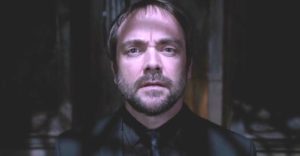Alien: The Differences Between Theatrical & Director’s Cut

Ridley Scott’s 1979 sci-fi/horror masterpiece Alien is one of the most beloved movies of all time, though many people may be unaware there is a director’s cut version with some differences from the theatrical release. Alien, which was originally pitched as “Jaws in space,” is an extremely tense sci-fi horror film that keeps audiences on their toes for all 117 minutes of the theatrical cut as Sigourney Weaver’s Ellen Ripley is hunted by a Xenomorph. Nearly 25 years after the original film’s premiere, Ridley Scott released the director’s cut of Alien, which changed several important scenes.
In 2003, Ridley Scott was approached by 20th Century Fox with the opportunity to release a new cut of Alien as part of the then definitive DVD box set of all the franchise’s movies. Scott is no stranger to alternate cuts of his famous films, with Blade Runner having eight officially released versions currently, but the director has so far only made two cuts of Alien. He initially intended to use Alien‘s director’s cut opportunity to restore scenes left on the cutting room floor for fans to enjoy, where horror master Ridley Scott would place them among Alien‘s theatrical version for a more complete edition of the film.
The complete version of Alien‘s director’s cut with a few extra scenes was never released, but a different director’s cut from Ridley Scott about the same length as Alien‘s theatrical version was released instead. Scott’s director’s cut remains fairly similar to the Alien theatrical cut, but certain differences have made it viewers’ preferred watching experience for the sci-fi/horror film. Here’s a breakdown of all of the changes made to the theatrical version in Ridley Scott’s Alien director’s cut, and which Alien cut is better.
Alien Director’s Cut Changes Explained

Scott felt adding in all the originally deleted scenes for Alien‘s director’s cut made the film too bloated and ruined the pacing, so he went back and actually removed parts of Alien‘s theatrical release to make some room for the new shots. In the end, the Alien director’s cut runs about a minute shorter than the theatrical version. Die-hard Alien fans will be most interested in this, as a majority of the changes, bar two significant scenes, are slight variations of existing sequences from the Alien theatrical cut. Many of the changes seem to reflect a desire to give modern audiences an updated cut with quicker pacing. Fans often point out Alien‘s long tracking shots are meant to shore up the atmosphere of isolation and grandiosity of space. Alien‘s director’s cut shortens a lot of them, forgoing subtle tension for getting to the action a little faster.
The two new Alien director’s cut scenes do provide interesting changes to the storyline and lore of both the film and franchise. In the first, Alien‘s POV character Ripley explicitly makes the call to keep Kane locked out of the ship after he is attacked by the facehugger. This sets her up as a strong-willed, sensible protagonist, a role that Sigourney Weaver’s character doesn’t actually fill in Alien‘s theatrical cut until later in the movie once Dallas gets killed off and it’s revealed she is the actual hero. The second crucial new scene in the Alien director’s cut shows Ripley discovering the Xenomorph nest in the ship where it appears Dallas and Brett are being transformed into eggs. As far as the Alien franchise’s lore is concerned, that’s not part of the life cycle of the Xenomorphs, especially after seeing James Cameron’s Aliens. Since it’s an originally deleted, non-canon scene, it’s more of an interesting curiosity than anything else.
Which Version Of Alien Is Better

Ultimately, the director’s cut of Alien doesn’t drastically change much for fans of the movie. Even Ridley Scott himself considers the Alien theatrical release the true version of the film and representative of his vision for it. The Alien director’s cut, then, is an interesting bonus made specifically for a collector’s box set containing alternate versions of the other movies in the franchise. When considering the continuity change of Dallas and Brett’s Xenomorph transformation, it may be better in the long run for viewers to watch Alien‘s theatrical cut when understanding the logistics of the franchise.
However, the Alien director’s cut boosts the pace and action of the original film, which may appeal more to those whose favorite franchise installment is James Cameron’s Aliens. Considering Ridley Scott is partial to Alien‘s theatrical cut and the new version didn’t add or detract much, the original cut is better, especially since there aren’t many changes necessary to the film in the first place. The only significant change in the Alien director’s cut was shortening the tracking shots and some longer sequences, whereas it can be argued that the tracking shots in Alien‘s theatrical cut were necessary to suspensefully build the isolated conflict.

















